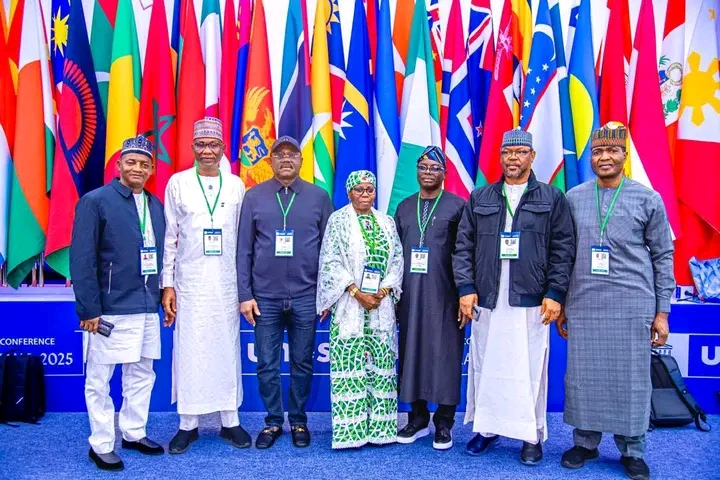At its 43rd General Conference of the Communication and Information Commission (CI Session) held in Samarkand, Uzbekistan, the United Nations Educational, Scientific and Cultural Organisation (UNESCO) has formally approved the designation of the International Media and Information Literacy Institute, Abuja, Nigeria, as a UNESCO Category 2 Institute, the first of its kind in the world.
With this approval, Nigeria is positioned as a global leader in the fight against misinformation and disinformation, empowering it to spearhead international research, policy dialogue, and capacity-building in a critical 21st-century digital field.
In his address to the UNESCO conference, the Honourable Minister of Information and National Orientation, Mohammed Idris, stated that the decision is “a strong vote of confidence in our nation.”
He affirmed Nigeria’s commitment to this responsibility, noting that the institute will serve as an international observatory and hub, enabling individuals and communities worldwide to navigate the digital age with discernment and confidence.
“The Nigerian government, under the leadership of President Bola Ahmed Tinubu, is committed to fostering a society where responsible free speech is seen as the engine of national progress,” Minister Idris said, adding, “A central pillar of our strategy is the democratisation of digital opportunities, with media and information literacy as the key driver.”
According to Idris, the historic achievement crowns a long and dedicated journey that began in October 2022, when Nigeria hosted the 10th Edition of the Global Media and Information Literacy and Feature Conference in Abuja, and promised the global body to establish a UNESCO International Media and Information Literacy Institute in Nigeria.
“I want to seize this opportunity to congratulate President Bola Ahmed Tinubu on this achievement, which is a reflection of his commitment to the Nigerian project aptly encapsulated in the Renewed Hope Agenda. This is equally a big win for all Nigerians and the continent of Africa,” said Idris.
He pledged that the government would continue to collaborate with UNESCO to meet the Institute’s infrastructure needs and strengthen its governance capacity by assembling a multidisciplinary team of experts to actualise its global mandate.
The Minister also revealed that the formal launch of the Institute is expected to be held in February 2026 in Abuja, and UNESCO officials, member states, and strategic partners will grace the occasion.
In attendance at the 43rd UNESCO General Conference to witness the designation of IMLI Nigeria as a Category-2 Institute were the Senate Committee Chairman on Information and National Orientation, Senator Engr. Kenneth Eze; the House Committee on Information, National, Ethics and Values, Honourable Olusola Fatoba; Director General of the Federal Radio Corporation of Nigeria (FRCN), Dr Mohammed Bulama (who represented the Minister of Information and National Orientation); the Director General of the Nigerian Television Authority (NTA), Malam Abdulhamid Salihu Dembos; the Director General of the Advertising Regulatory Council of Nigeria (ARCON), Dr Olalekan Fadolapo; the Director General of the Voice of Nigeria (VON), Malam Jibrin Baba Ndace and the Ambassador of Nigeria to UNESCO, Dr Hajo San, amongst other Nigerian government officials.

